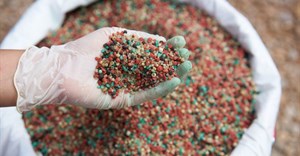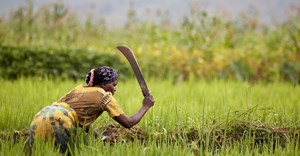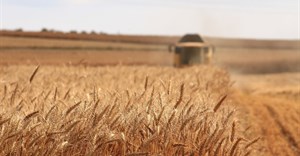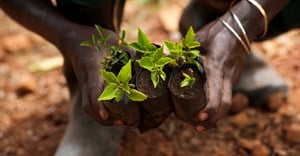Growing food in thin air
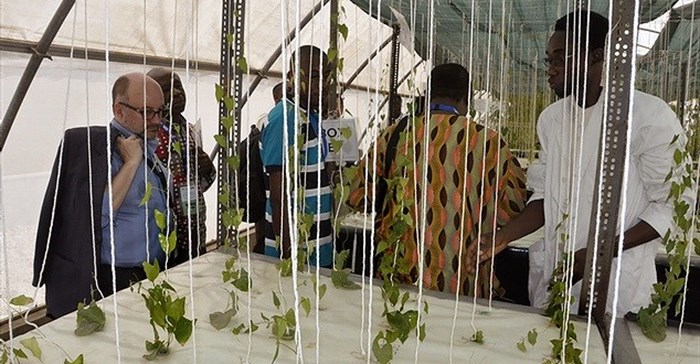
Ogbole is the founder of Sreach Aeroponics - an organisation which aims to train people on how to build and maintain systems where plants can be grown in the air. This means that everything from lettuce and tomatoes can be grown without soil and this can even be done indoors.
Soil-less
In an interview with Mail & Guardian Africa, Samson explained that he was first introduced to this soil-less system at the International Institute of Tropical Agriculture, where he studied for a year, after which he was taken on as a staffer and put in charge of an aeroponic system.
“It’s a simple idea”, he said, “in aeroponics, plant roots aren’t in soil instead they’re secured to a support platform and held in place at the stem by foam so that the root system hangs below in an enclosed or semi-enclosed chamber.”
“A pipe, which is connected to a pump and timer, brings nutrients - whether organic or inorganic - dissolved in water and sprays it onto the roots. It’s not a complicated system, which many people think it is, all they need to do is monitor the nutrient to make sure it doesn’t finish.”
“I can teach people how to make their own organic nutrient solution, but for those that prefer inorganic, you have to buy chemicals the way you buy fertilisers.”
Benefits of plants grown in "thin air"
Samson explained that there are huge benefits of having plants literally grow in “thin air,” free from soil borne pests and soil pollution.
Mail & Guardian Africa reported the system can reduce water usage by 98%, fertiliser usage by 95%, pesticide usage by 99% and can increase crop yields by 45% to 75%. It also enables faster growth of up to three to five times faster than conventional growing in soil. Lettuce for instance, in traditional systems, can be grown from seed to harvest in 70 to 90 days. While aeroponics growing would take just 25 to 30 days. Other plants proved to also have fantastic yields as a result of the system include beans, cucumber, tomatoes, peppers and ginger.
But Samson also explained that there are three big limitations and drawbacks to using this system. There needs to be 24 hour electricity (though some are turning to solar energy to overcome this,) the technical ability to know how to maintain and set up the system and, if done on a big commercial scale, the initial set up will be expensive. “But no matter how expensive – in the first year your returns are huge,” he said.
Custom-built aeroponics systems
Samson’s newly founded company is currently producing custom-built aeroponics systems - made to the specification and space requirements of the client.
To get an idea of cost he gave the example of a 5m by 1m lettuce aeroponics farm. The total cost for the system is 457,000 Naira ($2,290). A square metre (m²) will contain 50 holes which means 50 plants. In this design there are 10m², thus housing a total of 500 plants. In the case of lettuce, every 30 days, 500 plants will be harvested from this aeroponics system. This compared to a traditional farming system in which Samson claims a space of 10m² would produce 500 plants after 90 days - three times as long.
Big, larger scale aeroponic systems can be made though there are limitations as to what can be grown. Root vegetables can start their growing process in this system but will eventually have to be transferred to soil to become harvest ready. However, it has been shown that starting the process with aeroponics is very useful in producing seeds and healthier crop for root vegetables too.









